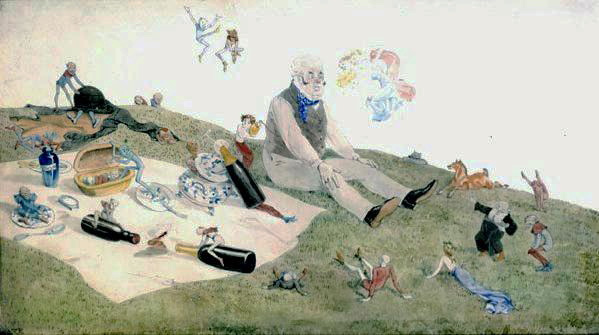 Altamont’s The Enchanted Picnic (1882) is a sad picnic that is neither enchanted nor pleasurable. The picnicker, perhaps Doyle himself, having finished four bottles of wine and champagne, is pleasantly suffering delirium tremens. Instead of monsters, the drunk...
Altamont’s The Enchanted Picnic (1882) is a sad picnic that is neither enchanted nor pleasurable. The picnicker, perhaps Doyle himself, having finished four bottles of wine and champagne, is pleasantly suffering delirium tremens. Instead of monsters, the drunk...
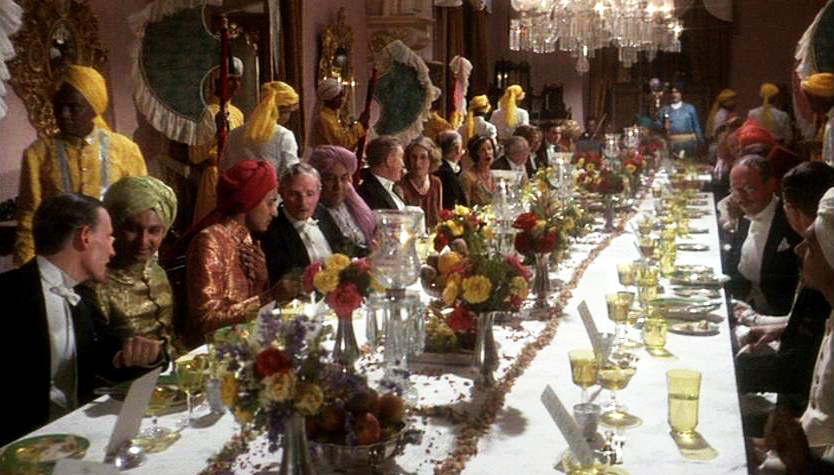 When the conversation at dinner turned to picnics, Hariot Dufferin, Lady Dufferin, claims that a guest told her that poggle-khana was a common Bengali expression for a picnic. She was asked for a translation and was informed it meant “a fool’s...
When the conversation at dinner turned to picnics, Hariot Dufferin, Lady Dufferin, claims that a guest told her that poggle-khana was a common Bengali expression for a picnic. She was asked for a translation and was informed it meant “a fool’s...
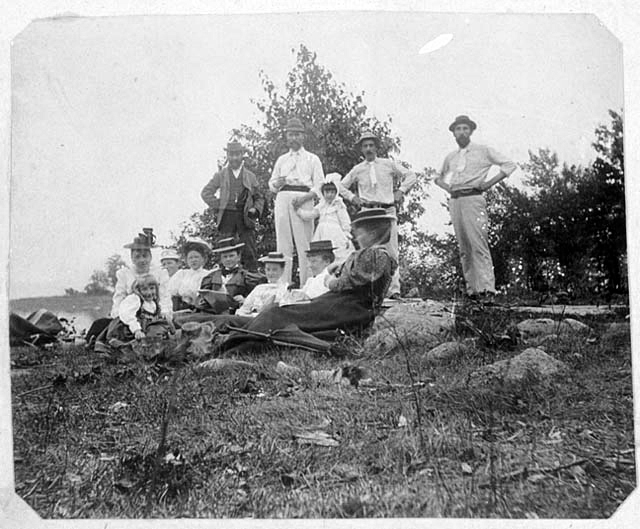 “People do all sorts of things at picnics” is Howells’s paradoxical foreshadowing of a love match that begins on a picnic on the rocky shore of the Bay of Fundy and then goes wrong. Though the picnickers are convivial, they mask their feelings, at...
“People do all sorts of things at picnics” is Howells’s paradoxical foreshadowing of a love match that begins on a picnic on the rocky shore of the Bay of Fundy and then goes wrong. Though the picnickers are convivial, they mask their feelings, at...
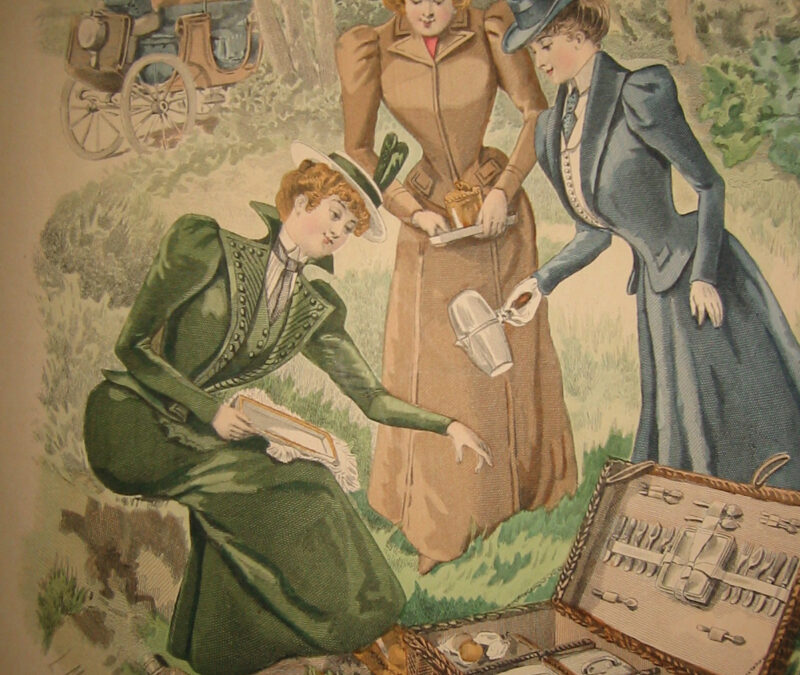 Goubaud’s pique-nique in La revue de la mode is an advertisement for picnic ware for upscale readers. As usual for picnics, this is a rural setting in an open forest. A country town can be seen deep in the background, as well as a chauffeur-driven electric Mercedes...
Goubaud’s pique-nique in La revue de la mode is an advertisement for picnic ware for upscale readers. As usual for picnics, this is a rural setting in an open forest. A country town can be seen deep in the background, as well as a chauffeur-driven electric Mercedes...
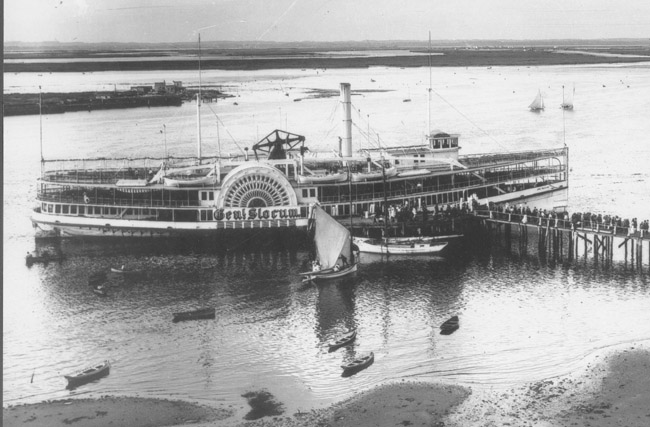 Searching for the joy and peace of a picnic doesn’t always mean it’s attainable. One thousand congregants of St. Mark’s Lutheran Church boarded General Slocum’s steamship at its birth on the East River in lower Manhattan and died. They expected...
Searching for the joy and peace of a picnic doesn’t always mean it’s attainable. One thousand congregants of St. Mark’s Lutheran Church boarded General Slocum’s steamship at its birth on the East River in lower Manhattan and died. They expected...
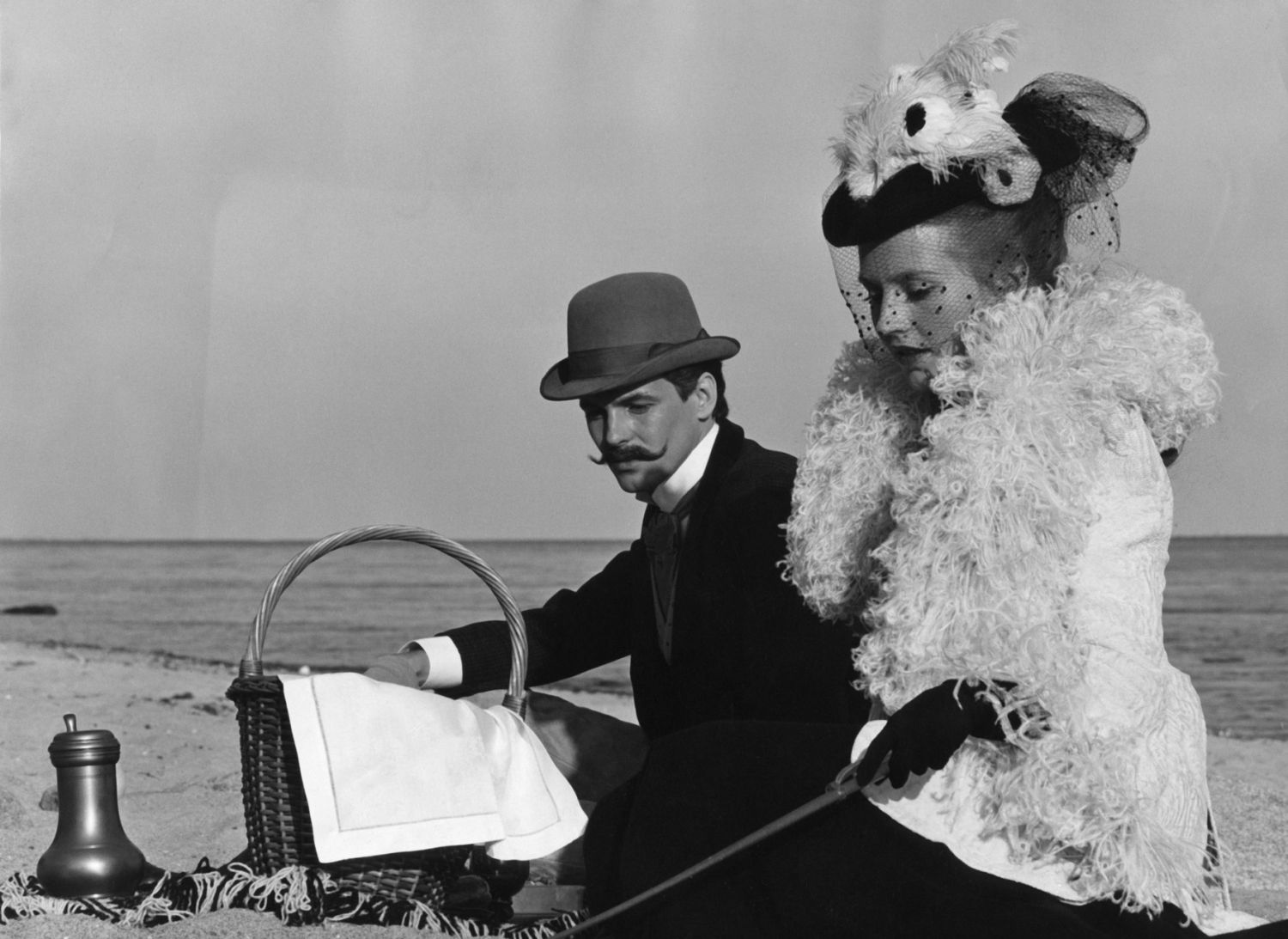 Fontane’s take on adultery in Effi Briest is a long, long sad story hinging on a beach-picnic-love affair. At first, it’s a recreational outing for Effi Briest and a friend, Major von Crampas. But soon, the recreation becomes a cover for lust. Though...
Fontane’s take on adultery in Effi Briest is a long, long sad story hinging on a beach-picnic-love affair. At first, it’s a recreational outing for Effi Briest and a friend, Major von Crampas. But soon, the recreation becomes a cover for lust. Though...
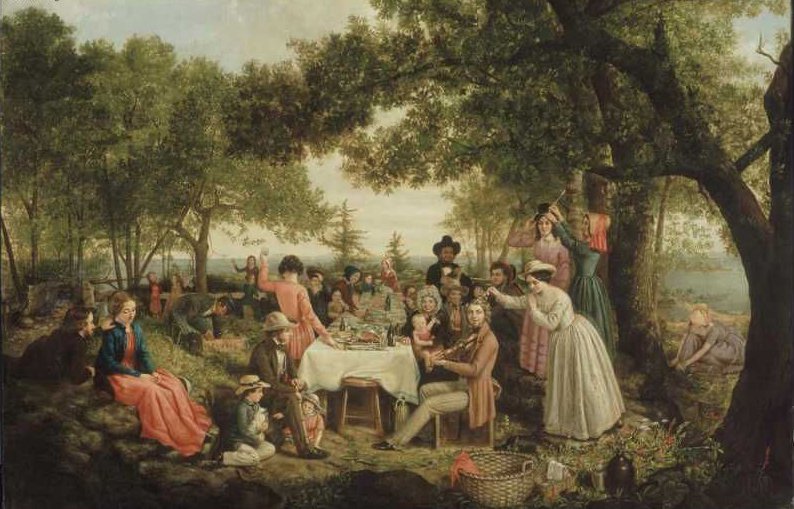 Jewett’s “The Reunion” and “The End of the Feast” are episodes describing the Bowden picnic reunion in Dunnet Landing, a fictional town in Maine. The Bowdens sit at long tables in a grove of trees overlooking the sea. It’s a festive...
Jewett’s “The Reunion” and “The End of the Feast” are episodes describing the Bowden picnic reunion in Dunnet Landing, a fictional town in Maine. The Bowdens sit at long tables in a grove of trees overlooking the sea. It’s a festive...
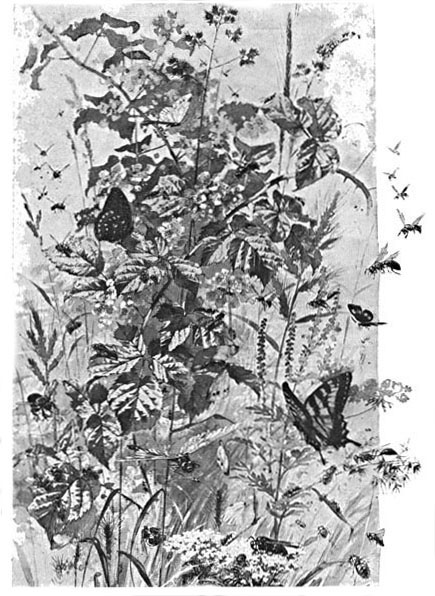 Gibson, nature writer and artist of the 1890s, describes the nature of things in “Honey Dew Picnic” from My Studio Neighbors (1897) is, a humorous essay about the feeding frenzy of insects in a forest. He says that while he never actually witnessed the...
Gibson, nature writer and artist of the 1890s, describes the nature of things in “Honey Dew Picnic” from My Studio Neighbors (1897) is, a humorous essay about the feeding frenzy of insects in a forest. He says that while he never actually witnessed the...
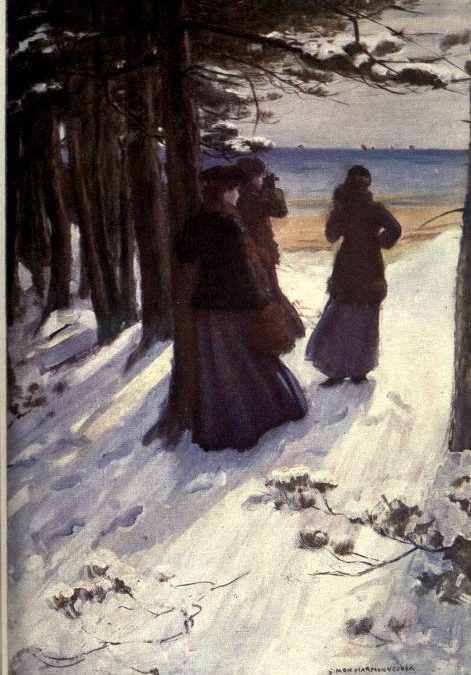 Winter picnics are few, and among the best is Elizabeth von Arnim’s on a freezing afternoon on a bluff above the Baltic. On a brilliant January day, Elizabeth’s birthday, she travels about three hours in a horse-drawn carriage over deep snow to a bluff...
Winter picnics are few, and among the best is Elizabeth von Arnim’s on a freezing afternoon on a bluff above the Baltic. On a brilliant January day, Elizabeth’s birthday, she travels about three hours in a horse-drawn carriage over deep snow to a bluff...
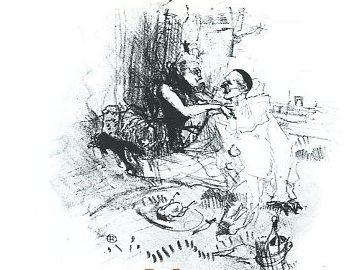 Le Pique-Nique was probably not Toulouse-Lautrec’s title because the French did not use pique-nique for such a meal. The subject is the Pierrot, the sad-sack clown, with whom Lautrec identified as a man who does not get the genuine affection of the woman he loves....
Le Pique-Nique was probably not Toulouse-Lautrec’s title because the French did not use pique-nique for such a meal. The subject is the Pierrot, the sad-sack clown, with whom Lautrec identified as a man who does not get the genuine affection of the woman he loves....











